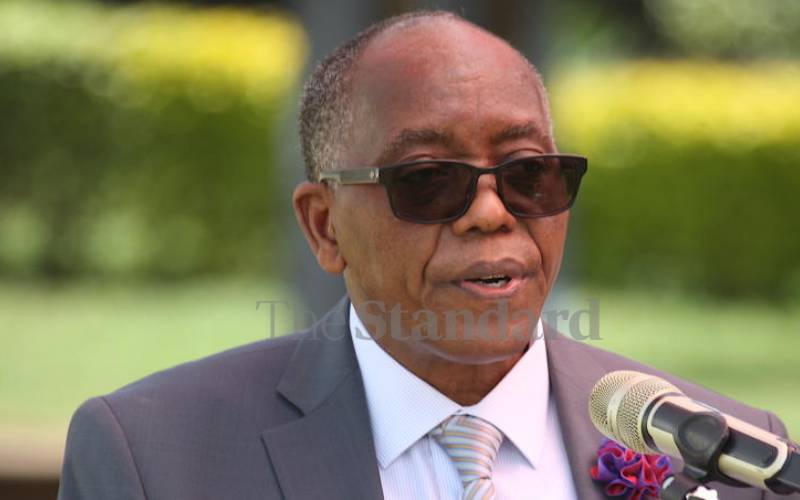×
The Standard e-Paper
Stay Informed, Even Offline

Joseph Kinyua, Head of Public Service. [Wilberforce Okwiri, Standard]
Civil servants seeking elective positions have been dealt a blow after the Court of Appeal overturned a decision that allowed them to stay in office until after party nominations.